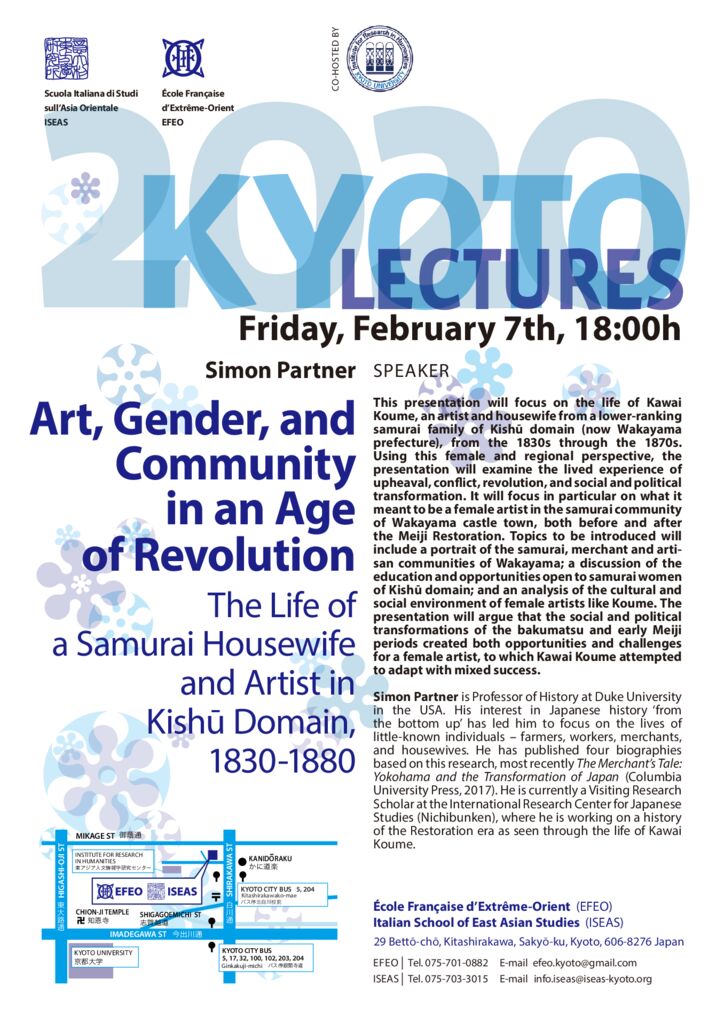This presentation will focus on the life of Kawai Koume, an artist and housewife from a lower-ranking samurai family of Kishu domain (now Wakayama prefecture), from the 1830s through the 1870s. Using this female and regional perspective, the presentation will examine the lived experience of upheaval, conict, revolution, and social and political transformation. It will focus in particular on what it meant to be a female artist in the samurai community of Wakayama castle town, both before and after the Meiji Restoration. Topics to be introduced will include a portrait of the samurai, merchant and artisan communities of Wakayama; a discussion of the education and opportunities open to samurai women of Kishu domain; and an analysis of the cultural and social environment of female artists like Koume. The presentation will argue that the social and political transformations of the bakumatsu and early Meiji periods created both opportunities and challenges for a female artist, to which Kawai Koume attempted to adapt with mixed success.
Simon Partner is Professor of History at Duke University in the USA. His interest in Japanese history ‘from the bottom up’ has led him to focus on the lives of little-known individuals – farmers, workers, merchants, and housewives. He has published four biographies based on this research, most recently The Merchant’s Tale: Yokohama and the Transformation of Japan (Columbia University Press, 2017). He is currently a Visiting Research Scholar at the International Research Center for Japanese Studies (Nichibunken), where he is working on a history of the Restoration era as seen through the life of Kawai Koume.
